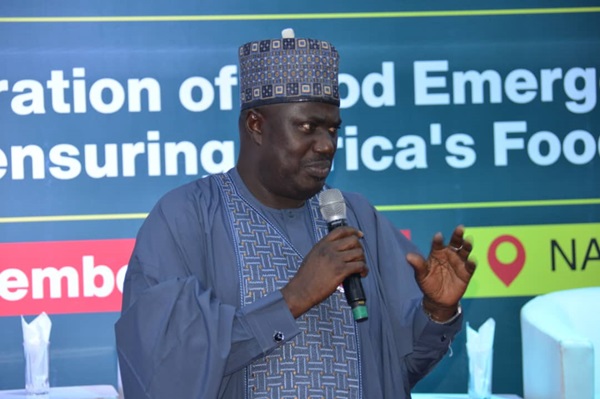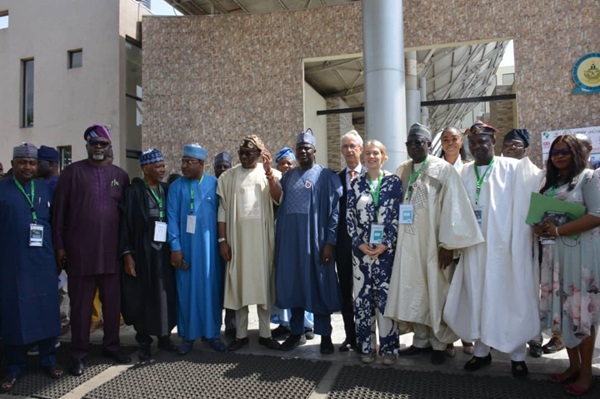
In a strategic move to address food inflation, create job opportunities and alleviate poverty, the Minister of State for Agriculture and Food Security, Dr. Aliyu Abdullahi has unveiled plans to produce 31 million metric tonnes (MT) of grains in 2024.
This initiative aligns with President Bola Ahmed Tinubu’s call for urgent action on food security.
Speaking at the 6th edition of the Seed Connect Conference and Exhibition in Abuja, themed “Global Declaration of Food Emergency – The Role of the Seed Industry and Ensuring Africa’s Food and Nutrition Security,” Abdullahi outlined the significant seed requirements for five major crops—rice, maize, wheat, soybeans and sorghum— totalling 312,555.69 MT of seeds, expected to yield almost 31 million metric tonnes of grains by 2024.
The minister highlighted a comprehensive approach to tackle food security challenges, categorising actions into short-term, intermediate, and long-term measures. One immediate priority is the certification of planting material for key crops in the upcoming dry season farming, initiated in Jigawa state on November 25, 2023.
Abdullahi emphasized the ministry’s focus on wheat production, targeting over 70,000 hectares with support from the Africa Development Bank (AfDB) and National Agricultural Growth Scheme and AgroPocket Scheme (NAGS-AP) project. Farmers receive backing with quality seeds for rice, maize, soybean and other inputs at subsidised rates.
He detailed short-term interventions, including pasture seeds development, fodder and foliage estates aimed at mitigating farmer-herder clashes. The minister also mentioned the establishment of gene banks and the initiation of the National Agricultural Development Fund to support production and critical agricultural infrastructure.

Financial reforms, particularly in the Bank of Agriculture and Nigeria Agricultural Insurance Corporation (NAIC), are on the agenda to meet the needs of farmers using digital solutions. Abdullahi highlighted the refocusing of the National Agricultural Seeds Council (NASC) to enhance sensitisation, surveillance, and enforcement to curb uncertified seeds’ infiltration.
The minister emphasised the empowerment of NASC through strategic reforms and budgeting aligned with key performance indicators (KPIs). In his welcome address, the acting director-general of NASC, Dr. Ishiak Khalid dedicated this year’s event to the global declaration of a food emergency, stressing the pivotal role of Africa’s Seed Sector in creating a sustainable food system.
Khalid announced NASC’s plans for a National Seed Planning meeting, bringing stakeholders together to plan for the 2024 planting season and achieve the national seed requirement. The use of licensed seed inspectors for low-level certification efficiency was also highlighted.
The Netherlands’ Ambassador to Nigeria, Wouter Plomp commended the Netherlands-Nigeria Seed Partnership for advancing Nigeria’s seed sector through knowledge exchange and mutual collaboration. Representatives from the ministry’s development partners, including USAID, AATF, AGRA, World Bank and Syngenta Foundation, were present at the opening session. The partnership aims to drive efficient seed certification, surveillance, and the elimination of adulterated seeds while building industry capacity.
In conclusion, the minister’s ambitious plan to produce 31 million metric tonnes of grains by 2024 reflects a robust strategy to enhance food security, promote economic growth, and respond effectively to the challenges outlined by President Bola Ahmed Tinubu. The collaborative efforts of stakeholders, both domestic and international, will play a crucial role in realising these objectives.


